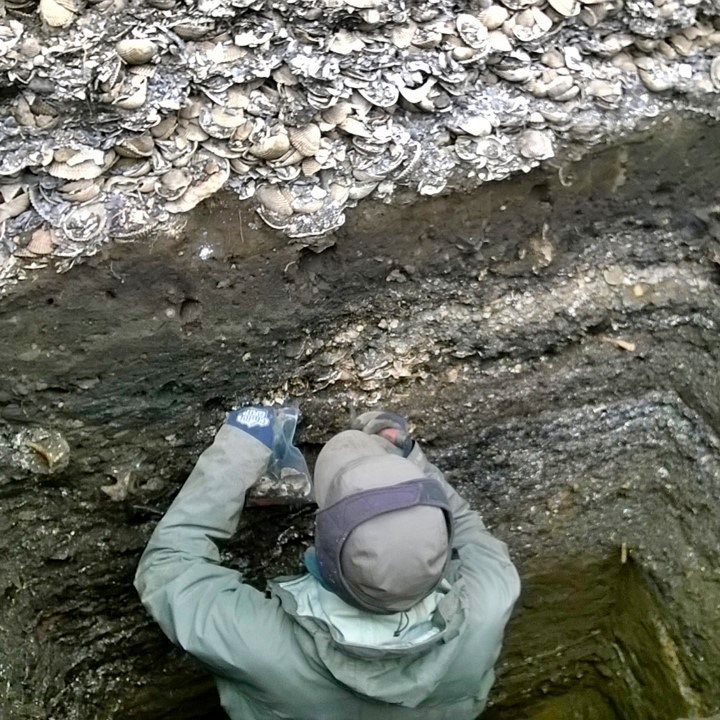July 29, 2021
by Nicole Misarti

Layers of sediment, rich with marine animal bone, are excavated from an archaeological midden on the Alaska peninsula. Photo by Nicole Misarti.
Sometimes it is easier to start with what we do not do. We are not like Lara Croft, swinging through the jungle with guns, trying to keep the bad guys from destroying history. Nor are we Indiana Jones (though I really don’t like snakes). We do not study dinosaurs, or their eggs- but if you asked one of us we would probably tell you how cool it would be to do so. And we don’t spend a lot of time looking at rocks unless other humans used them as tools in the past. We do dig in the dirt a lot, but this is a lot less glamourous than movies make it look. This is even more true if you work in Alaska, in a remote location. Often, we are in a tent for weeks, without a shower, in the rain and cold, missing our dogs and cats (ok and our human family too!), dreaming nightly of a burger and fries and pledging to sell our souls if only one would magically appear…Preferably on a tray alongside a clawfoot tub filled with hot water and bubbles.
But back to exactly what it means to be an archaeologist. These days we come with all sorts of background expertise from chemistry to biology to sociocultural knowledge. Some archaeologists are plant experts. Others have expertise in the rocks that humans used as tools. Some know soils really well. Some (like me) focus on bones and what their presence, chemistry and biology, and use by humans can tell us. Some are experts in rock art or ancient languages. Others (like Caroline) focus on the humans themselves; their lives, knowledge, beliefs etc. As science has progressed, the field of archaeology has grown to include too many subdisciplines to cover in a single blog.
Archaeologists do have a few things in common though. We all study and analyze the physical remains of our human past. Those physical remains range from house structures to works of art to garbage pits (called middens). We have respect for the amazing amounts of knowledge people held (and still hold) about the world around them. We think our present and future world can benefit from a better understanding of the past. And yes — we all have skills when it comes to digging in the dirt to uncover the material remains of the past we find so fascinating.